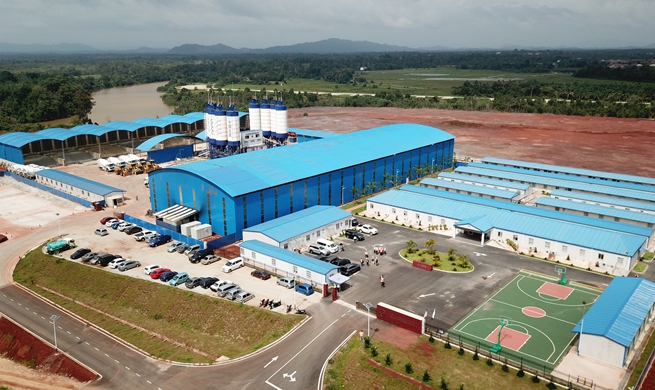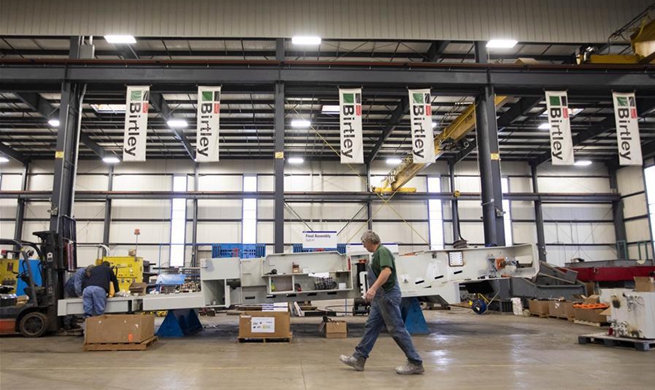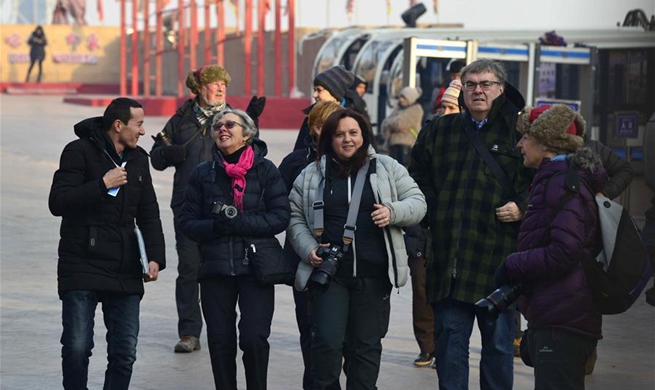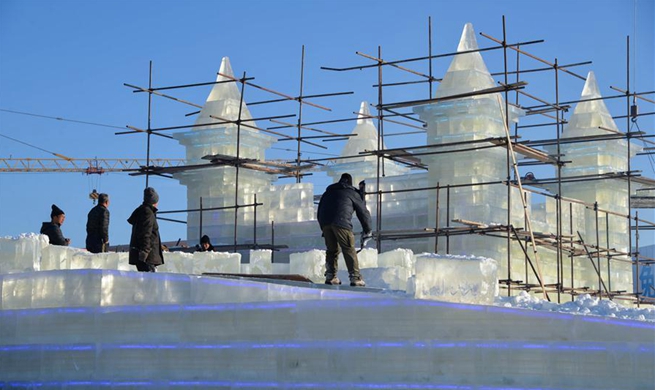JUBA, Dec. 9 (Xinhua) -- South Sudan needs to build strong institutions and rule of law to reduce widening income inequalities, poverty and unemployment as it seeks to recover from six years of conflict, experts said on Monday.
Aggrey Tisa Sabuni, presidential economic advisor revealed that Juba's poor performance worldwide in the human development index (HDI) 2019 at 186 out of 189 countries was due to the lack of strong institutions and rule of law to curb widening inequality and poverty.
"The real drivers of inequality, poverty and unemployment have to do with the governance system in place. Put a proper governance system in place to me means the rest of the things will be in place. It means the institutions will be well established, they will be strong and they will deliver," said Sabuni in Juba during the launch of the global human development index by the UN Development Programme (UNDP).
This year's HDI titled "beyond income, beyond averages, beyond today" highlights global inequalities with South Sudan ranking bottom among others like Mozambique, Niger, Yemeni and Democratic Republic of Congo (DRC).
Sabuni disclosed that South Sudan should reform its huge civil service to reduce costs and also make it effective to deliver services to the population.
"With good governance in place, the issue of corruption will be minimized, because corruption is the mother of poverty and unemployment. This can only be sorted out by good governance which results in strong institutions that can deliver," he said.
Peter Lam Both, member of the ruling Sudan People's Liberation Movement (SPLM) secretariat, said that the majority of South Sudanese are yearning for good governance system and rule of law in order to steer the country out of the current political and economic crisis which has ruined the oil-dependent economy.
"People of South Sudan talk about governance as a big problem, what type of system of government would they choose for themselves and they talk about lack of implementation of the laws in the country and lack of accountability," said Both.
"There is insecurity in the country and when there is insecurity there is no way you will be able to carry out development activities. They also talk of the end of this war and having a regionally balanced and ethnically diverse security sector for South Sudan," he added.
Kamil Kamaludeen, the deputy country representative of the United Nations Development Programme (UNDP), said that human development goes beyond income and includes access to services, rights and participation.
"The focus of the report should not be about South Sudan ranking 186 out 0f 189 countries for the (2019) economic report. The focus should be on the progress that countries have made and South Sudan has continued to make progress but there is still more to catch-up with," he said.
Mou Ambrose Thiik, the former deputy finance minister, said South Sudan should increasingly support the growth of the private sector by creating an enabling environment for attracting foreign direct investment (FDI) which remains low due to conflict.
"Most of the projects have failed in South Sudan because of the weakness of institutions but also the private sector is still very weak," said Thiik.
Luris Mulla, a fellow with Tony Elumelu foundation entrepreneurship program, said there is an urgent need to support women in order to reduce on the widening gender inequality in South Sudan.
"If we are serious about talking about development, change, inequality and transformation in South Sudan, then we have to look carefully about the issue of South Sudan women. These women are playing a very big role in keeping their society together despite all the challenges, political turmoil that the country is facing," she said.
"It is these women that are able to feed the children and the household. Without these women playing this role in South Sudan, the situation wouldn't be the way it is now," added Mulla.













